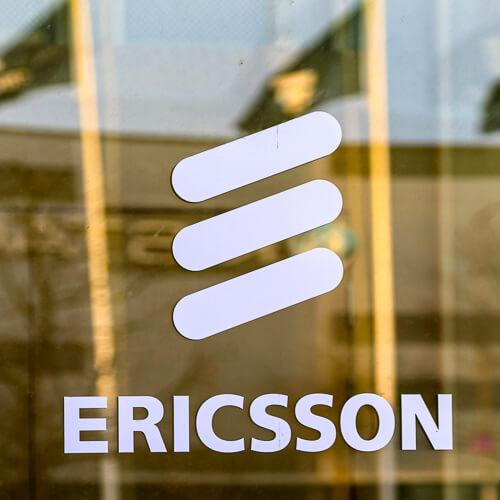Ericsson shells out $6.2B for Vonage
CEO Börje Ekholm optimistic about creating a new and lucrative 5G API market in the enterprise space through its biggest ever acquisition.

Ericsson and Vonage, a cloud-based communications provider, look set to become an item.
A $21 per-share offer tabled by the Swedish telecom equipment supplier, giving Vonage an enterprise value of around $6.2 billion, was unanimously approved by the Holmdel, New Jersey-based company's board of directors.
If all goes to plan, Vonage CEO Rory Read will start reporting to Börje Ekholm, Ericsson's CEO, sometime during the first half of 2022.
Ekholm, outlining the rationale for the acquisition in a call with analysts, spoke effusively about creating an open a global innovation platform whereby Vonage's 1 million registered developers can access various 5G network QoS APIs (quality of service application programming interfaces) – covering the likes of latency, security, throughput and, by implication, network slicing – across the footprints of multiple communications service providers (CSPs).
"By leveraging the Vonage platform – its developer community and enterprise reach – we can drive usage of advanced APIs to make sure the full ecosystem benefits from the monetization of 5G investment beyond mobile broadband," said Ekholm.
The CEO, elaborating on his "win-win" theme, framed the Vonage takeover as not only a "next step in developing Ericsson and growing the company by capturing additional market opportunities," but also as a way to add value to Ericsson's core networks business.
Figure 1:  (Source: Ericsson)
(Source: Ericsson)
API investigation
A new wave of 5G-based enterprise apps utilizing QoS APIs, reasoned Ekholm, will translate into more traffic (and revenue) across 5G networks. He was particularly enthusiastic about combining Vonage's "high-value APIs," including video, with Ericsson's 5G (and 4G) QoS APIs.
"Vonage represents 7% of the API market today, but, by the middle of this decade, the total market will be worth more than 50% of the global RAN market," asserted Ekholm. "We can create a market with 5G APIs."
As a first step, Ekholm said Ericsson will work with Vonage to embed "advanced network capabilities" to their existing APIs. "We conservatively estimate the [API] market to be worth $8 billion by 2030," added Ericsson's CEO. He anticipated that the Ericsson-Vonage combo would grab a "significant market share."
The cloud-based Vonage Communications Platform (VCP) embeds messaging, voice and video into applications and products. Unified communications as a service (UCaaS) and contact center as a service (CCaaS) solutions are also part of VCP.
Disruptive Wireless analyst Dean Bubley, however, doesn't share Ekholm's seemingly unalloyed optimism for the pulling power of QoS APIs within app developer communities.
"He seems to think that someone using comms APIs – the likes of SMS, chatbot, voice/video calls and analytics – will also be wanting to use network QoS APIs," said Bubley in an email exchange with Light Reading. "But I really don't think there's that much overlap."
If there was an overlap, argued Bubley, it would have already manifested itself in fixed-network and LAN APIs. "I can't imagine that someone writing a call-center app is going to suddenly start buying 5G network slices," he said.
More M&A in the Ericsson pipeline
Ekholm alluded to more "technology acquisitions" in the future to bolster Ericsson's 5G API push through Vonage. Effectively describing Kathrein and Cradlepoint as M&A success stories, Ericsson's CEO claimed "we have the ability to integrate and run acquisitions in a good way."
He emphasized that Ericsson needed to use its M&A experience "to move into new areas."
Related stories:
— Ken Wieland, contributing editor, special to Light Reading
Read more about:
EuropeAbout the Author(s)
You May Also Like












